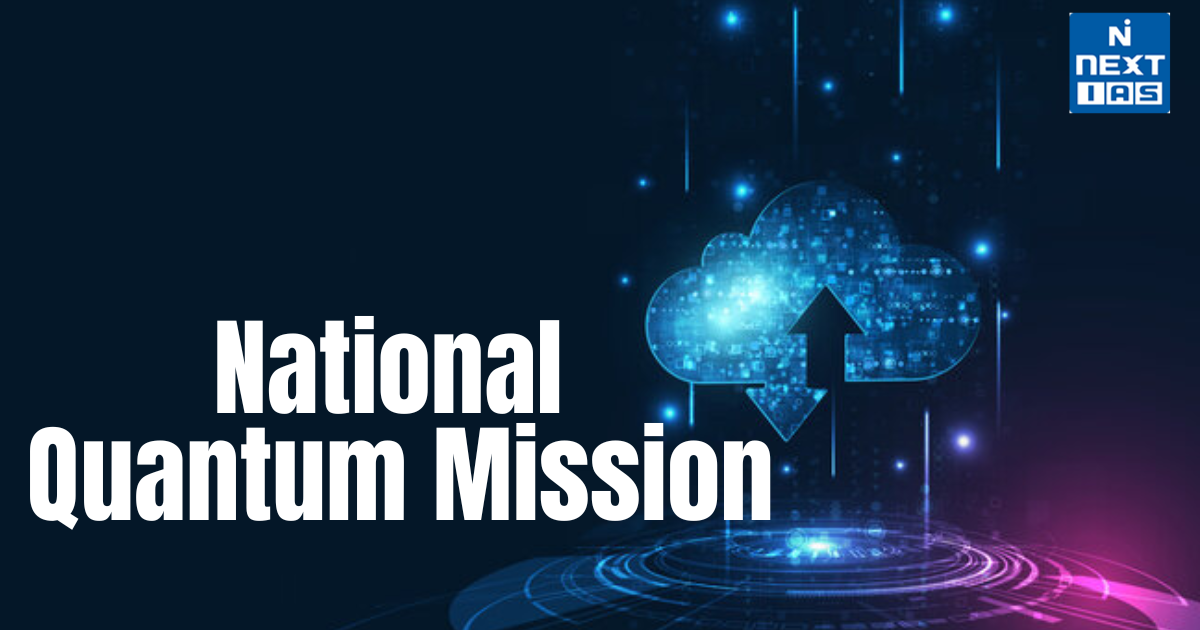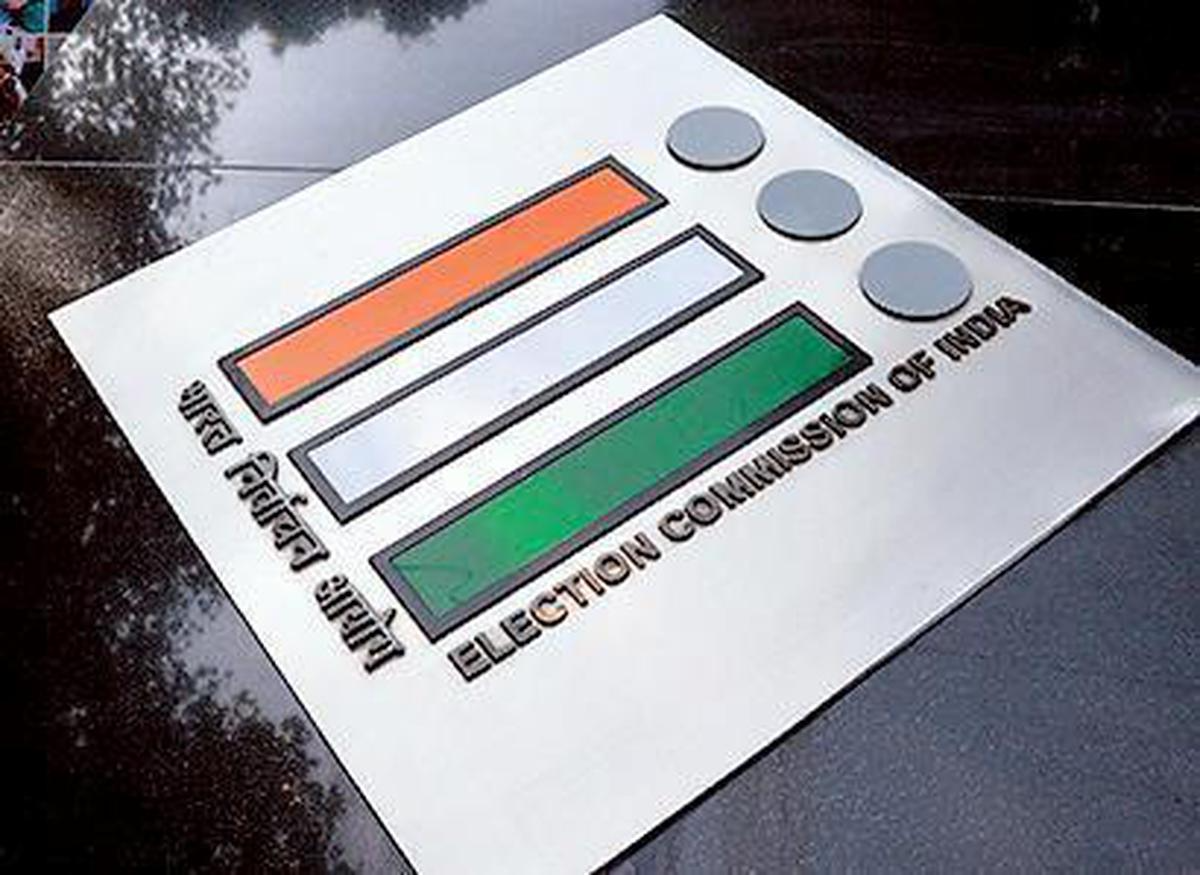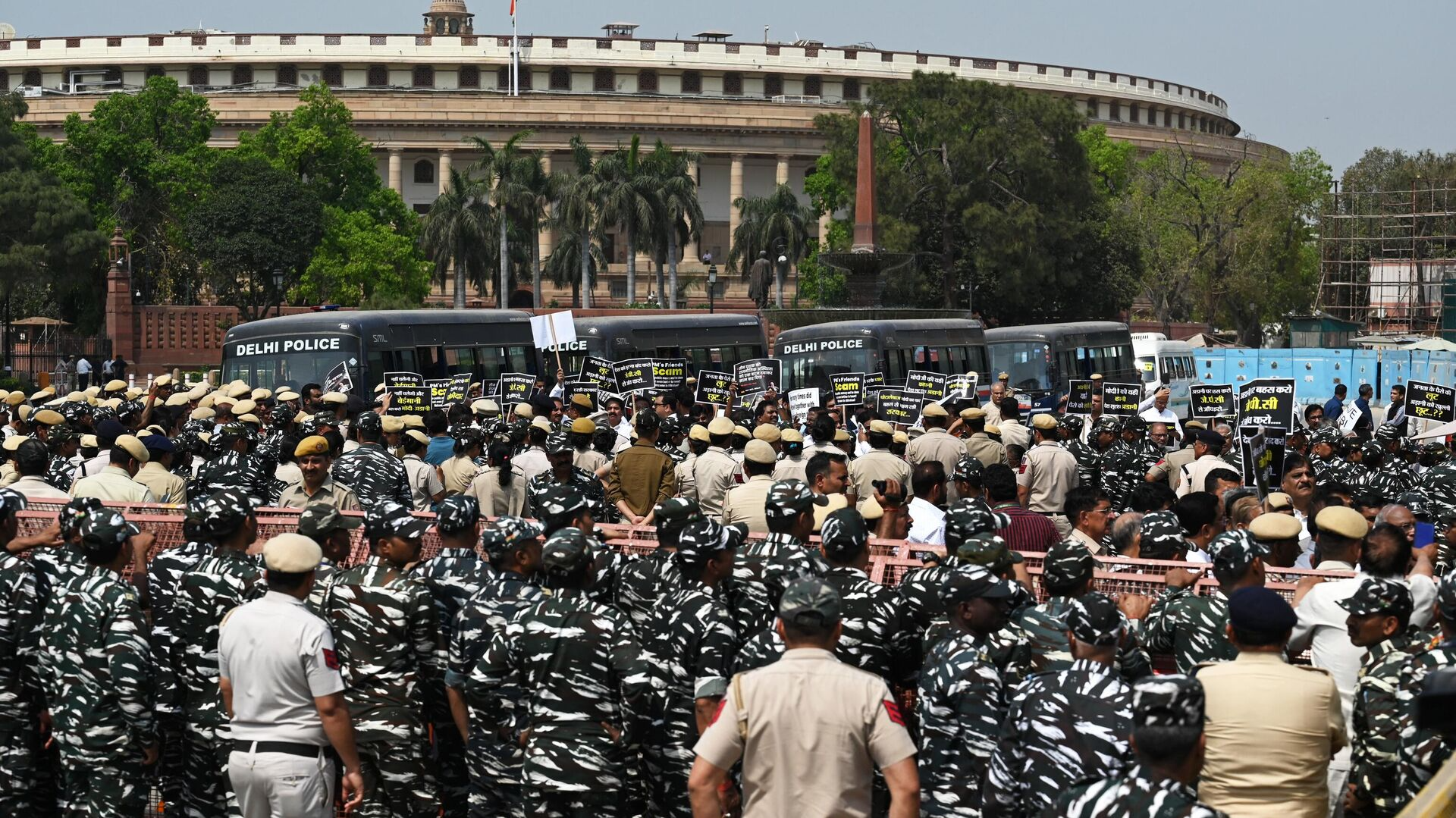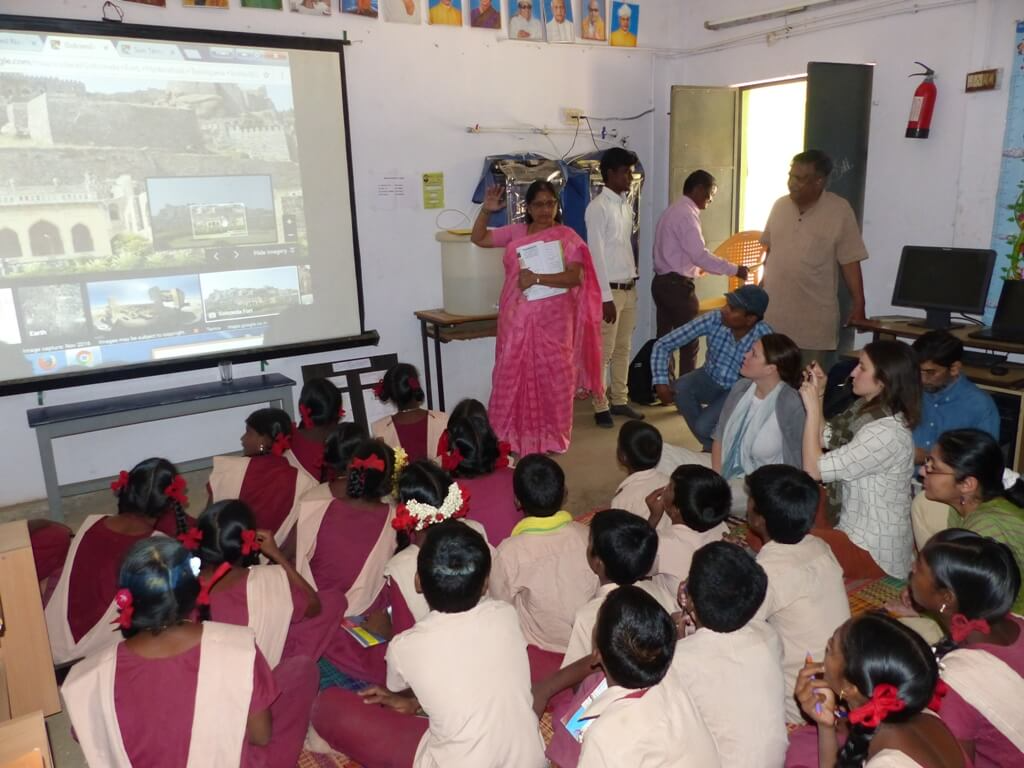India’s National Quantum Mission Begins
Posted On July 11, 2025

The Government of India has launched its ambitious National Quantum Mission (NQM), marking a decisive move to position the country as a global leader in quantum science and technology. With an estimated investment of ₹6000 crore over a five-year period, the mission will build cutting-edge research infrastructure, develop quantum communication networks, and foster indigenous innovation in quantum computing and sensing. Spearheaded by the Department of Science & Technology and backed by major academic institutions, national laboratories, start-ups, and industry partners, the NQM signifies a strategic shift towards future-ready technologies. It underscores a recognition by policymakers that quantum technologies-often dubbed the “next digital revolution”-hold transformative potential for national security, communications, healthcare, materials science, and beyond.
The foundational pillar of the mission is the establishment of Quantum Innovation Zones across premier institutes and universities. These dedicated centres of excellence will host advanced laboratories equipped with photonic systems, cryogenic platforms, ion traps, superconducting hardware, and quantum simulators. These facilities aim to attract talent-attracting PhD scholars and postdoctoral fellows-with fellowships in the range of ₹70,000 to ₹1 lakh per month, offering mentorship from internationally renowned scientists. Through multidisciplinary collaboration, researchers will address core challenges such as quantum decoherence, error correction, scalable qubit architectures, and reliable quantum-resistant encryption for communication. Plans include linking academically linked quantum networks between at least seven nodes in the first phase, enabling secure quantum key distribution and experiments in ultra-sensitive measurements.
Another major thrust lies in industry-academia partnerships to scale up quantum startups and translate lab breakthroughs into commercial products. The mission will offer seed grants, incubation support, testbeds, and access to shared facilities, aimed at bridging the “valley of death” between prototype and product. Firms specializing in photonic quantum chips, quantum-enabled sensors, and secure communications are expected to receive guided support. At the same time, established technology giants and public sector undertakings are being roped in to co-invest and integrate quantum modules into conventional systems, accelerating their adoption across sectors like finance, cybersecurity, logistics, healthcare, agriculture, and remote sensing.
Keeping quantum education and skilling at its core, the NQM includes plans for a national-level Quantum Computing Curriculum at undergraduate and graduate levels. Over 50 universities are set to introduce quantum information science and engineering courses by 2026, complemented by Massive Open Online Courses (MOOCs) in collaboration with platforms like SWAYAM and NPTEL. Teachers and researchers will be trained via summer schools, faculty exchange programs, and workshops featuring global experts. To instill early interest, the mission will also roll out quantum clubs in about 1000 secondary and higher secondary schools, where students can engage with interactive kits, quantum board games, visual simulators, and problem-solving challenges. The longer-term goals include nurturing a domestic talent pipeline capable of running quantum-centric companies and research labs in the coming decade.
National security and resilient communication also feature prominently under the mission, with the planned deployment of India's first Quantum Communication Satellite. Como parable with existing optical fibre-based quantum key distribution (QKD) links, the satellite will facilitate secure, tamper-proof messaging for defense installations, strategic nodes, and financial systems. Ground stations in major cities-starting with Delhi, Mumbai, Bengaluru, and Kolkata-will enable key distribution over large distances, bypassing limitations of ground cables. These efforts dovetail with international cooperation, as India has inked MoUs with agencies from the European Union, Japan, Australia, and Canada to share quantum infrastructure, align standardization roadmaps, and collaborate on joint technology missions.
From an economic perspective, economic cell modeling projects foresee the quantum economy reaching a value of over USD 20 billion by 2030, with annual employment growth exceeding 40% in high-skill job categories. The mission's planning documents estimate that every rupee invested could generate a minimum of three rupees in economic output over the next decade, driven by technology exports, service-led solutions, and domain-specific use cases. Special emphasis will be placed on de-risking investments in nascent quantum ventures, through matchmaking events with venture investors, and creating dedicated “Quantum Innovation Funds.” Government procurement schemes will require demonstration of quantum-augmented systems-like ultra-sensitive sensors for power grids, quantum-enhanced imaging tools for healthcare, and encryption devices for secure e-governance.
Despite the promise, the mission faces intrinsic challenges. Quantum research is notoriously complex and capital-intensive, with uncertainty about scalability to truly useful qubit counts and coherence times. Attracting and retaining talent is a hurdle, especially given competition from Silicon Valley and European labs offering high pay and prestige. There are also concerns around ensuring equitable geographical distribution-ensuring that smaller universities, not just IITs and IISc, benefit from mission funds. Furthermore, quantum regulations, export controls, and intellectual property frameworks will need updating to balance openness with security. The mission’s success relies heavily on establishing robust monitoring, standard metrics, and alignment between central agencies, state governments, and private stakeholders.
Community response from academia, start-ups, and think tanks has been largely optimistic. Leading physicists have welcomed the mission as a long-overdue milestone that consolidates fragmented efforts. Start‑up founders-from firms working on quantum random number generators to quantum photonic chips-see it as a catalyst for building a national ecosystem. Civil society consultative meetings are planned to deliberate on ethical, privacy, and equity aspects. International observers have noted that India’s mission, though smaller in scale than that of the US and China, may be better positioned to leverage niche strengths, bilingual manpower, and cost-efficient manufacturing. The mission’s modular rollout-starting with a few excellence centres and scaling over time-has been praised as a prudent, risk-mitigated strategy.
Looking ahead, the mission's true measure of success will lie not just in publications or patents but in demonstrated impact- secure quantum communication trials protecting national infrastructure, quantum sensors deployed in smart agrarian setups, quantum simulators aiding drug discovery, and domestic manufacturing of key quantum components. The long-term vision is to integrate quantum modules into education, healthcare, industry, and defense, aligning the mission with national priorities like Digital India, Make in India, Atmanirbhar Bharat, and Aatmanirbhar Innovation. If sustained political and administrative will, sustained funding, and ecosystem partnerships hold firm, India could emerge not only as a consumer but as a producer and exporter of quantum technologies. In the next five years, the National Quantum Mission may well become a landmark case of science-led national transformation-for an age powered not by electricity or semiconductors, but by the fundamental laws of quantum nature.
The foundational pillar of the mission is the establishment of Quantum Innovation Zones across premier institutes and universities. These dedicated centres of excellence will host advanced laboratories equipped with photonic systems, cryogenic platforms, ion traps, superconducting hardware, and quantum simulators. These facilities aim to attract talent-attracting PhD scholars and postdoctoral fellows-with fellowships in the range of ₹70,000 to ₹1 lakh per month, offering mentorship from internationally renowned scientists. Through multidisciplinary collaboration, researchers will address core challenges such as quantum decoherence, error correction, scalable qubit architectures, and reliable quantum-resistant encryption for communication. Plans include linking academically linked quantum networks between at least seven nodes in the first phase, enabling secure quantum key distribution and experiments in ultra-sensitive measurements.
Another major thrust lies in industry-academia partnerships to scale up quantum startups and translate lab breakthroughs into commercial products. The mission will offer seed grants, incubation support, testbeds, and access to shared facilities, aimed at bridging the “valley of death” between prototype and product. Firms specializing in photonic quantum chips, quantum-enabled sensors, and secure communications are expected to receive guided support. At the same time, established technology giants and public sector undertakings are being roped in to co-invest and integrate quantum modules into conventional systems, accelerating their adoption across sectors like finance, cybersecurity, logistics, healthcare, agriculture, and remote sensing.
Keeping quantum education and skilling at its core, the NQM includes plans for a national-level Quantum Computing Curriculum at undergraduate and graduate levels. Over 50 universities are set to introduce quantum information science and engineering courses by 2026, complemented by Massive Open Online Courses (MOOCs) in collaboration with platforms like SWAYAM and NPTEL. Teachers and researchers will be trained via summer schools, faculty exchange programs, and workshops featuring global experts. To instill early interest, the mission will also roll out quantum clubs in about 1000 secondary and higher secondary schools, where students can engage with interactive kits, quantum board games, visual simulators, and problem-solving challenges. The longer-term goals include nurturing a domestic talent pipeline capable of running quantum-centric companies and research labs in the coming decade.
National security and resilient communication also feature prominently under the mission, with the planned deployment of India's first Quantum Communication Satellite. Como parable with existing optical fibre-based quantum key distribution (QKD) links, the satellite will facilitate secure, tamper-proof messaging for defense installations, strategic nodes, and financial systems. Ground stations in major cities-starting with Delhi, Mumbai, Bengaluru, and Kolkata-will enable key distribution over large distances, bypassing limitations of ground cables. These efforts dovetail with international cooperation, as India has inked MoUs with agencies from the European Union, Japan, Australia, and Canada to share quantum infrastructure, align standardization roadmaps, and collaborate on joint technology missions.
From an economic perspective, economic cell modeling projects foresee the quantum economy reaching a value of over USD 20 billion by 2030, with annual employment growth exceeding 40% in high-skill job categories. The mission's planning documents estimate that every rupee invested could generate a minimum of three rupees in economic output over the next decade, driven by technology exports, service-led solutions, and domain-specific use cases. Special emphasis will be placed on de-risking investments in nascent quantum ventures, through matchmaking events with venture investors, and creating dedicated “Quantum Innovation Funds.” Government procurement schemes will require demonstration of quantum-augmented systems-like ultra-sensitive sensors for power grids, quantum-enhanced imaging tools for healthcare, and encryption devices for secure e-governance.
Despite the promise, the mission faces intrinsic challenges. Quantum research is notoriously complex and capital-intensive, with uncertainty about scalability to truly useful qubit counts and coherence times. Attracting and retaining talent is a hurdle, especially given competition from Silicon Valley and European labs offering high pay and prestige. There are also concerns around ensuring equitable geographical distribution-ensuring that smaller universities, not just IITs and IISc, benefit from mission funds. Furthermore, quantum regulations, export controls, and intellectual property frameworks will need updating to balance openness with security. The mission’s success relies heavily on establishing robust monitoring, standard metrics, and alignment between central agencies, state governments, and private stakeholders.
Community response from academia, start-ups, and think tanks has been largely optimistic. Leading physicists have welcomed the mission as a long-overdue milestone that consolidates fragmented efforts. Start‑up founders-from firms working on quantum random number generators to quantum photonic chips-see it as a catalyst for building a national ecosystem. Civil society consultative meetings are planned to deliberate on ethical, privacy, and equity aspects. International observers have noted that India’s mission, though smaller in scale than that of the US and China, may be better positioned to leverage niche strengths, bilingual manpower, and cost-efficient manufacturing. The mission’s modular rollout-starting with a few excellence centres and scaling over time-has been praised as a prudent, risk-mitigated strategy.
Looking ahead, the mission's true measure of success will lie not just in publications or patents but in demonstrated impact- secure quantum communication trials protecting national infrastructure, quantum sensors deployed in smart agrarian setups, quantum simulators aiding drug discovery, and domestic manufacturing of key quantum components. The long-term vision is to integrate quantum modules into education, healthcare, industry, and defense, aligning the mission with national priorities like Digital India, Make in India, Atmanirbhar Bharat, and Aatmanirbhar Innovation. If sustained political and administrative will, sustained funding, and ecosystem partnerships hold firm, India could emerge not only as a consumer but as a producer and exporter of quantum technologies. In the next five years, the National Quantum Mission may well become a landmark case of science-led national transformation-for an age powered not by electricity or semiconductors, but by the fundamental laws of quantum nature.











